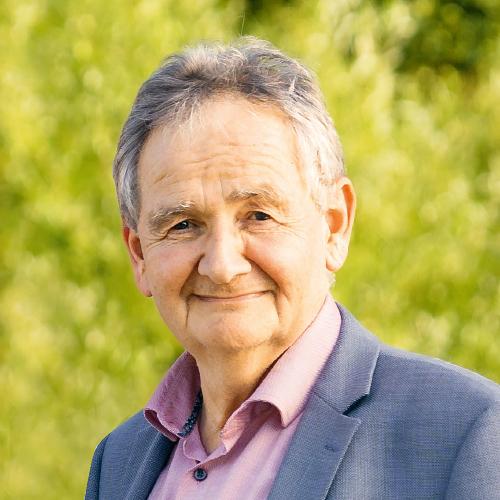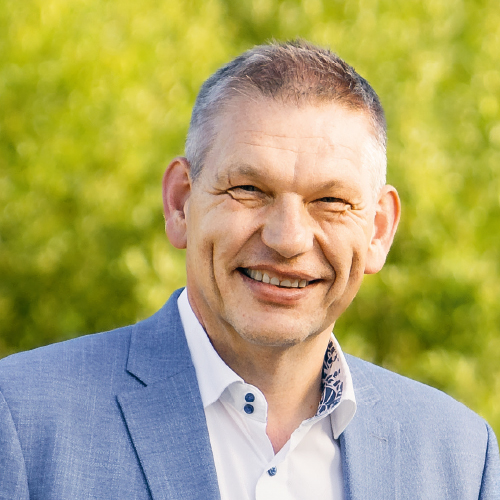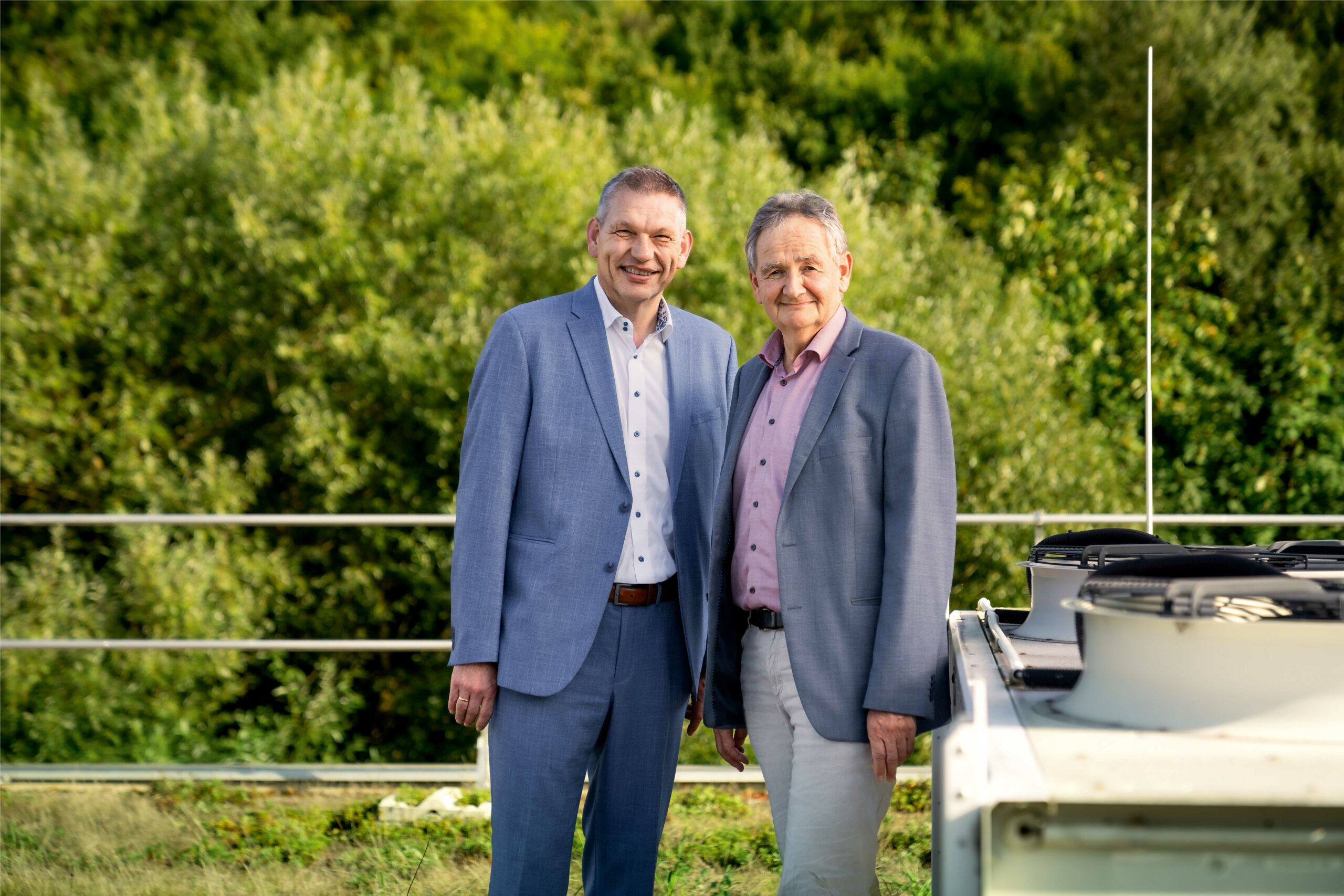Since April 1, 2023, a new sustainability department at ebm-papst has been working exclusively on this topic and driving it forward. CFO Hans Peter Fuchs and ESG officer Klaus Wittmann talk about exactly what this means and what goals the company is pursuing.
ebm-papst has a long tradition of sustainability. So what is changing now?
Hans Peter Fuchs: Indeed, sustainability is part of our DNA. Since the company was founded, the focus has been on increasing the efficiency of products. At the new building in Hollenbach, we pursued green technologies and CO₂ savings in as early as the mid-2000s. Our apprentices that serve as Energy Scouts have been looking for energy guzzlers in production since 2010, which many companies have since been using as a model. It is not surprising that we won the German Sustainability Award in 2013 for all our efforts. All of our thoughts and actions are shaped by sustainability, but general conditions have changed drastically for all companies since the Paris Climate Agreement and the EU Green Deal: what used to come down to intrinsic motivation now is a legal obligation that we have to – and want to – fulfill.

Sustainability is part of our DNA. Since the company was founded, the focus has been on increasing the efficiency of products.
Hans Peter Fuchs, CFO
Klaus Wittmann: The requirements now are hard numbers, data, and facts. Everything we do is also verifiable. This requires agile structures and an ambitious team. With the new ESG (Environmental, Social and Governance) department, we are able to bring the company together globally and work together with all our sites. The understanding of the term has also changed: so far, sustainability has often been equated with climate or environmental protection. However, sustainability is a holistic concept that includes social aspects and responsible corporate management in addition to the environment. We are now working on this systematically.
Nevertheless, let’s talk about climate goals first: When he took up his position, CEO Klaus Geißdörfer said that ebm-papst has to become climate neutral more quickly. How quickly can that happen?
Wittmann: By 2025, we want to be climate neutral for Scope 1 and 2. The first priority for us is preventing emissions. Our focus is on continuing to drive energy efficiency projects forward. I am thinking of potential savings in building management, machinery, and our production processes. The second measure is investing in renewable energies for our own requirements. We will be expanding or installing new photovoltaic systems and renewable energies wherever it makes technical sense. This also relieves the burden on the power grids and can cover a good portion of our required electricity. A third step will be to switch the electricity we purchase to green electricity as quickly as possible. By purchasing electricity from renewable energies by the end of 2023, we will manage to prevent about 60 percent of our total CO₂ emissions in Germany, China, the USA, and four other countries. Wherever it is technically impossible to prevent or reduce emissions, we use compensation certificates and support longterm climate protection projects.
How does this affect your own products, which are usually very energy-efficient?
Fuchs: Most of our products are so efficient that they consume relatively little energy. We will make them even more efficient and digitalize them even more so that we can save even more. But they will continue to consume energy in and of itself, also because they are often used for decades. For Scope 3, we therefore also need to look long term at the energy mix used to operate our products in the application. Another important aspect that we are now taking into account more is the circular economy. That was not the focus in the past. Here too, a strong rethink is required. Because, on the development side, this affects how a product is constructed, so it can be dismantled again. And then there is the question of returning them, i.e. how do I bring these raw materials back into the cycle. We will also think about what suitable business models look like.

In the future, we need to think more holistically and always keep an eye on the issues of the environment, social aspects, and responsible corporate management.
Klaus Wittmann, ESG officer
What do you see as the greatest challenge on this sustainable path?
Wittmann: For me, it is the cultural change that accompanies it. In the future, we need to think more holistically and always keep an eye on the issues of the environment, social aspects, and responsible corporate management. This applies not only to those in charge, but to all employees. After all, everyone makes a contribution to this change and is an ambassador to the outside world.
Fuchs: The goal is to get so far that this is an almost subconscious process: Is the decision I make today also a sustainable one – for the climate and the company?
Surely customers will ask themselves: What does this approach to sustainability at ebm-papst mean for me?
Wittmann: Above all, I see the need for more partnership and greater collaboration and networking throughout the supply chain. Also in regards to the social aspects of sustainability, this will have a positive impact on working together. For me, sustainable business means “looking to the future together.” When it comes to climate change, a significant improvement is only possible – especially in Scope 3 – in partnership with the supply chain and with customers. Collaborating closely with our suppliers to analyze the supply chain is crucial to success. Reducing emissions in the product usage phase is only possible if we work more closely with our customers and also gain data on how and where our products are used.
Fuchs: Sustainability is an investment in the future. It is also important to understand that our customers expect us to be moving forward with sustainability! They are subject to the same requirements and we can help reduce their carbon footprint. To become climate neutral, we need to look at the entire value chain and get better and better. And this only works if we have our customers on board.

Leave a comment